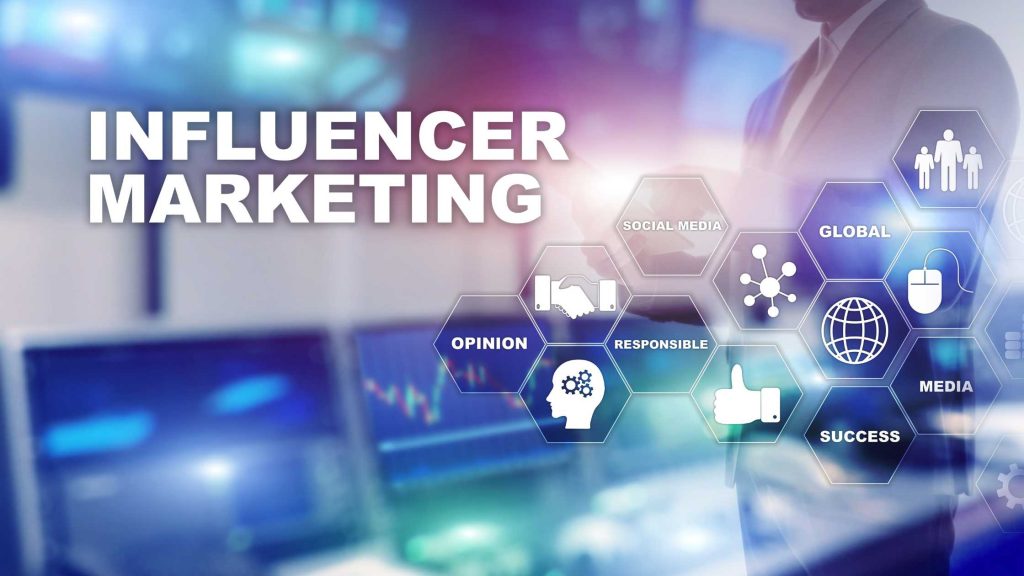What is Influencer Marketing ? : Comprehensive Guide 2024
What is Influencer Marketing : In the evolving world of digital marketing, influencer marketing has emerged as one of the most impactful strategies for businesses to engage with their target audiences. By leveraging the reach and credibility of individuals who hold sway over specific communities or niches, brands can achieve authentic engagement and foster trust among consumers.
Table of Contents
This essay explores the concept of influencer marketing, its benefits, challenges, and best practices for businesses.
Definition of Influencer Marketing

Influencer marketing is a type of social media marketing that involves endorsements and product placements by individuals—referred to as influencers—who have a dedicated following on digital platforms.
Also Read : What Are Digital Marketing Analytics ?
These influencers use their credibility and relationship with their audience to promote products or services in a way that feels authentic and relatable. Unlike traditional advertising, influencer marketing relies on the influencer’s organic connection with their followers, making it a powerful tool for building brand awareness and driving sales.
Types of Influencers
Influencers can be categorized based on the size of their following and the niche they cater to. Here are the main types:

- Mega-Influencers: These are celebrities or individuals with massive followings (usually over 1 million) on platforms like Instagram, YouTube, or TikTok. They offer extensive reach but often lack the personal connection with their audience that smaller influencers provide.
- Macro-Influencers: With followers ranging from 100,000 to 1 million, macro-influencers are often industry experts or well-known personalities in their fields. They balance reach and engagement, making them suitable for medium-to-large campaigns.
- Micro-Influencers: These influencers typically have between 10,000 and 100,000 followers and are known for their high engagement rates. They often cater to niche audiences, making them ideal for targeted campaigns.
- Nano-Influencers: With fewer than 10,000 followers, nano-influencers have the closest relationships with their audiences. They’re particularly effective for hyper-local or community-based marketing campaigns.
Benefits of Influencer Marketing
- Authenticity and Trust Influencers build their followings by sharing authentic, relatable content. When they endorse a product or service, their audience views it as a trusted recommendation rather than a paid advertisement.
- Targeted Reach Brands can collaborate with influencers who align with their target demographics, ensuring that their message reaches the right audience.
- Enhanced Engagement Influencers drive higher engagement rates compared to traditional ads. Their followers actively like, comment, and share their content, creating organic buzz around the brand.
- Improved ROI With proper planning, influencer marketing often delivers a high return on investment. Many studies have shown that for every dollar spent on influencer marketing, brands can earn significant returns in terms of sales and brand loyalty.
- Access to Creative Content Influencers excel at creating compelling and visually appealing content. Brands can repurpose this content for their own social media or advertising campaigns, saving time and resources.
Challenges in Influencer Marketing
- Finding the Right Influencer Identifying influencers who align with a brand’s values, goals, and target audience can be a time-consuming process. Choosing the wrong influencer may lead to a lack of authenticity or poor campaign results.
- Measuring ROI Unlike traditional marketing channels, measuring the return on investment for influencer campaigns can be challenging. Brands need to set clear metrics such as engagement rates, website traffic, or conversions to evaluate success.
- Fake Followers and Engagement Some influencers inflate their follower counts through purchased followers or bots. Collaborating with such influencers can result in wasted resources and ineffective campaigns.
- Maintaining Brand Control While influencers are trusted for their creativity and authenticity, brands must strike a balance between giving them creative freedom and ensuring the message aligns with their objectives.
Best Practices for Influencer Marketing

What is Influencer Marketing – What is Influencer Marketing in India – What is Influencer Marketing 2025
- Define Clear Objectives Before launching an influencer campaign, brands should establish their goals, whether it’s increasing brand awareness, driving sales, or boosting engagement.
- Conduct Thorough Research Vet influencers carefully by analyzing their audience demographics, engagement rates, and previous collaborations. Tools like Social Blade or influencer marketing platforms can assist in this process.
- Focus on Relationships Long-term collaborations with influencers tend to be more effective than one-off campaigns. Building relationships fosters trust and authenticity, leading to better results over time.
- Track Performance Metrics Use analytics tools to monitor the success of influencer campaigns. Key metrics to track include reach, impressions, engagement, website traffic, and conversions.
- Ensure Transparency Influencers must disclose paid partnerships to comply with advertising regulations and maintain transparency with their audience. This builds trust and avoids potential backlash.
Real-World Examples
- Daniel Wellington The watch brand Daniel Wellington successfully used influencer marketing to build its brand presence globally. By partnering with micro- and macro-influencers, the company created a buzz around its minimalist designs and achieved significant growth.
- Gymshark Gymshark, a fitness apparel brand, leveraged fitness influencers to target gym-goers and fitness enthusiasts. This strategy not only increased their sales but also built a loyal community of customers.
What is Influencer Marketing – Conclusion
Influencer marketing has transformed the way brands interact with consumers.
Buy Now : News & Magazine Website AI Automated
By leveraging the trust and credibility of influencers, businesses can achieve meaningful engagement, enhance their reach, and boost sales. However, success in influencer marketing requires careful planning, thorough research, and clear communication. As the digital landscape continues to evolve, influencer marketing is set to remain a cornerstone of modern advertising strategies.
Disclaimer
The information provided in this review is based on personal research and user experiences regarding the Surveytime platform. Earnings and survey availability may vary based on factors such as location, demographic profile, and eligibility. While Surveytime is a legitimate platform, it may not guarantee consistent income or suitability for everyone. Always exercise caution when sharing personal information online and conduct your research before engaging with any survey or earning platform. This review is for informational purposes only and does not constitute financial or professional advice.



